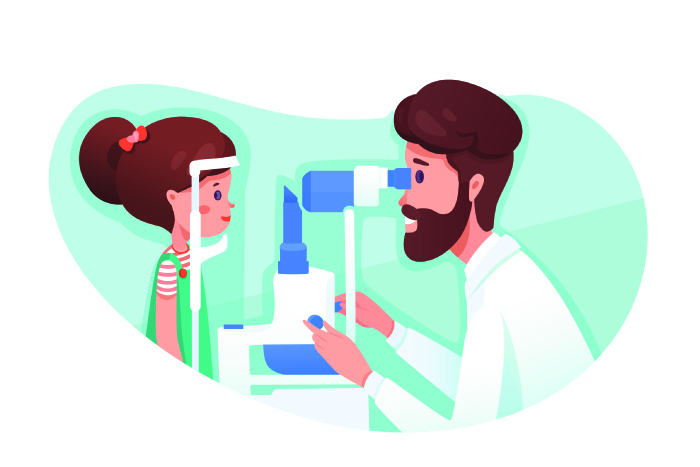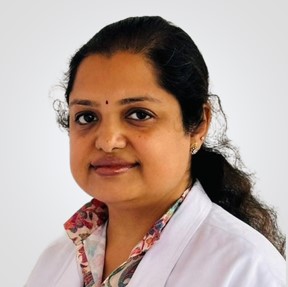All About Ophthalmology
Most of us are likely to suffer from an eye problem at some point in our life. The list of eye disorders can include eye infections, blurred vision, cataracts and optic nerve problems. Ophthalmology is the branch of medicine that studies and treats eye disorders. The doctors who specialize in ophthalmology are called ophthalmologists.

What is ophthalmology all about?
The eyes are very delicate and remarkably complex organs. The etymology of ophthalmology takes us to the Greek word, ophthalmos, meaning eye.
Ophthalmology is the study and treatment of diseases in the visual system, usually through surgical and pharmaceutical methods to correct cataracts, abnormal growths, vision impairments, etc.
Ophthalmologists are medical doctors who specialize in the care of your eyes and visual system. What makes an ophthalmologist different from an optometrist is that the former is a medical doctor who can perform surgical interventions for eye disorders whereas the latter can only provide primary eye care. For example, if you have LASIK surgery, cataract surgery, glaucoma treatment or corneal detachment repair, you would have to see an ophthalmologist.
What are the specialties in ophthalmology?
Ophthalmologists are trained in performing a wide range of medical and surgical procedures related to the eye. But often, ophthalmologists specialize in one or more of the following sub-specialties:
- glaucoma
- plastic and reconstructive surgery
- cornea
- retina
- refractive surgery
- uveitis
- pediatrics
- neuro-ophthalmology
- ocular oncology
What are the types of eye disorders we should be aware of?
Ophthalmology deals with multiple eye disorders, right from allergies to optic nerve disorders. Cataracts are the leading cause of vision impairment across the world. Glaucoma is another eye disorder that damages the optic nerves in the eyes and can gradually lead to loss of vision. Excessive glucose levels in the blood can cause diabetic retinopathy, which involves damage to blood vessels in the eyes. For individuals over the age of 50, age-related macular degeneration usually affects and may lead to loss of vision due to damage to the macula.
Other examples of eye disorders are:
- Dry eye syndrome
- Refractive errors - myopia (nearsightedness), hyperopia (farsightedness), presbyopia (loss of near vision with age) and astigmatism
- Excessive tearing (tear duct obstruction)
- Eye tumors
- Proptosis (bulged eyes)
- Strabismus (misalignment or deviation of eyes)
- Uveitis
- Color blindness
What are the symptoms of eye disorders?
Symptoms of eye disorders include:
- Loss or reduction in vision
- Strain in eyes
- Redness
- Eye pain
- Seeing floaters or flashes
- Dryness in eye
- Cloudiness in eye
What causes eye disorders?
Eye disorders can be mild or severe and their causes vary accordingly.
- Working for long hours with computers and other devices
- Exposure to dust or any foreign particles
- Lack of vitamin A
- Excessive glucose levels in the blood
- Genetic disorders
- Injury to the eyes
- Blocked blood vessels due to other diseases
When should you consult an ophthalmologist?
Diseases like cataracts do not have pain or redness in the eye and are formed slowly. Hence, it is essential to conduct regular eye checkups with an ophthalmologist. Consult an ophthalmologist if you have any of the symptoms described above.
You can request an appointment at Apollo Spectra Hospitals. Call 1860 500 2244 to book an appointment.
What are the treatments available in ophthalmology?
Treatments in ophthalmology can be categorized into three parts.
- Prescription of glasses or contact lenses to improve vision
- Surgical procedures
- Treatment with medicines
Ophthalmology hospitals conduct corneal detachment treatment, cataract surgery, blepharoplasty, etc.
Conclusion
An ophthalmologist has to diagnose, prevent, monitor and treat all disorders related to the eyes and vision. The medical procedures performed by an ophthalmologist range from prescribing eyeglasses to conducting surgeries. They also contribute to scientific research in the field of ophthalmology. Eyes are fragile organs and essential for day-to-day activities. Hence, it is essential to take good care of your eyes and consult an ophthalmologist for regular checkups.
Opticians, unlike ophthalmologists, cannot examine, diagnose or treat diseases of the eyes. They usually help with measuring, fitting and adjusting eyeglasses. It is better to not get confused between an ophthalmologist and an optician, and always reach out to ophthalmology doctors near you to treat eye disorders.
In India, you will have to complete an MBBS course first and then go for a postgraduate degree in ophthalmology in order to become an ophthalmologist. Hence, ophthalmologists are trained to diagnose other diseases and refer you to specialists if they find any other disorders.
No, cataract surgeries are not painful.
Our Doctors
DR MARY VARGHESE
MBBS, DOMS, MS...
| Experience | : | 33 Years Experience |
|---|---|---|
| Speciality | : | Ophthalmology... | Location | : | Koramangala |
| Timings | : | Tue, Wed, Thur : 10:... |
DR. SHALINI SHETTY
MBBS, MS (Ophthalmol...
| Experience | : | 30 Years Experience |
|---|---|---|
| Speciality | : | Ophthalmology... | Location | : | Koramangala |
| Timings | : | Available by prior a... |
DR. DIVYA SUNDARESH
MBBS, DO, DNB...
| Experience | : | 14 Years Experience |
|---|---|---|
| Speciality | : | Ophthalmology... | Location | : | Koramangala |
| Timings | : | Mon, Fri : 9:00 AM t... |
Our Top Specialities
NOTICE BOARD
CONTACT US
CONTACT US
 Book Appointment
Book Appointment





.svg)
.svg)
.svg)
.svg)








